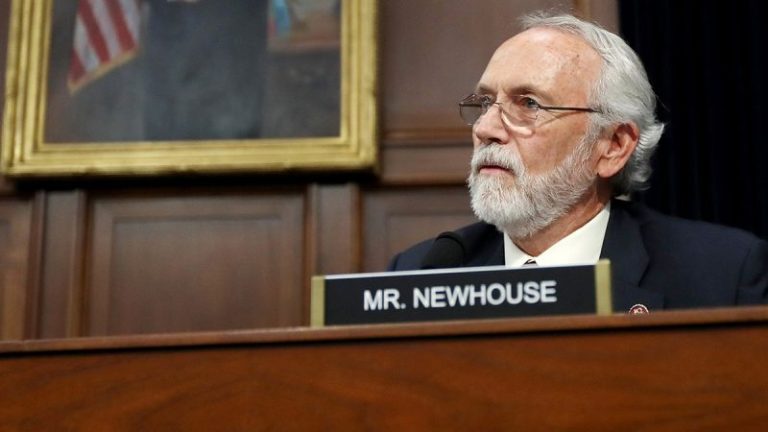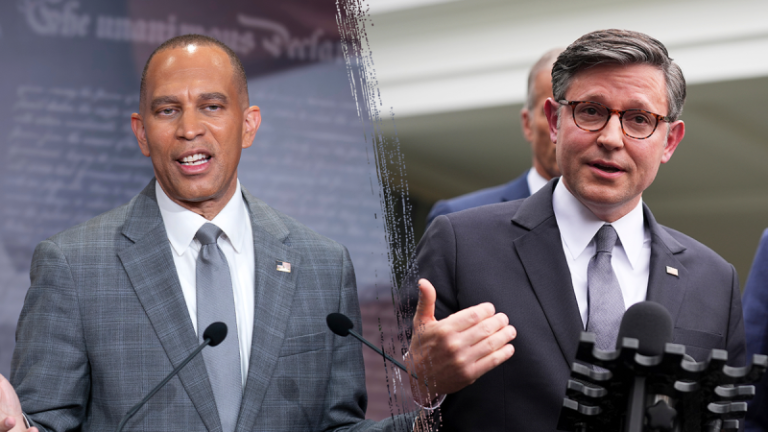Nevada Sunrise Metals Corporation (TSXV: NEV,OTC:NVSGF) (OTC Pink: NVSGF) (‘Nevada Sunrise’ or the ‘Company’) is pleased to announce it has completed surface geophysical and geochemical exploration surveys at its Griffon Gold Mine Project (‘Griffon’, or the ‘Project’) in White Pine County, Nevada, USA. Griffon hosts a past-producing gold mine and is located within the Battle Mountain-Eureka Gold Belt, a prolific trend that contains numerous gold mines and deposits.
Highlights of the Fall 2025 Exploration Program
Nevada Sunrise based its Fall 2025 surface exploration program on the results of AI-generated analysis by VRIFY Technology Inc. (‘VRIFY‘) of the extensive historical Griffon geological and geophysical database for the Project (see Nevada Sunrise news release dated September 9, 2025), including:
- Over 700 soil samples collected by APEX Geoscience USA (‘APEX’) will be analyzed by partial leach geochemical analysis by both Ionic Leach and Soil Gas Hydrocarbon (‘SGH’) methods. Each of these methods are capable of detecting subtle indications of buried mineralization that may not show robust surface expression from conventional soil surveys;
- APEX carried out a ‘walking mag’ survey consisting of 50-line kilometres that has provided the first ever high-resolution magnetic data at Griffon. Preliminary interpretation of the data has revealed important information about the structural settings of the past-producing Discovery Ridge and Hammer Ridge deposits – knowledge which now can be applied to other untested target areas at the Project;
- SJ Geophysics Ltd. carried out 3D induced polarization/resistivity (‘3D-IP’) and audiomagnetotellurics (‘AMT’) surveys consisting of 16.8 line kilometres on grids designed to investigate the resistivity and chargeability characteristics of the subsurface at Griffon. These survey types have never been performed at Griffon since the discovery of gold on the property in 1986 (see Figure 1).
Soil Sampling and Walking Mag surveys in progress at Griffon, November 2025
To view an enhanced version of this graphic, please visit:
https://images.newsfilecorp.com/files/2799/278476_nevadasunrise.jpg
‘Nevada Sunrise is fortunate to have completed this important work during a period of favourable autumn weather in Nevada,’ said Warren Stanyer, President and CEO of Nevada Sunrise. ‘The pending integration of new geochemical and geophysical data with VRIFY’s AI predictive model will be an invaluable addition to the development of Griffon drill targets for 2026.’
Figure 1: Griffon Gold Mine Project 2025-2026 Target areas
To view an enhanced version of this graphic, please visit:
https://images.newsfilecorp.com/files/2799/278476_7d678aef54c8c8d3_004full.jpg
Nevada Sunrise anticipates the receipt of geochemical analyses and geophysical modeling from the ground surveys in January 2026. Re-sampling and multi-element geochemical analysis of reverse circulation drill cuttings collected at Griffon by Fremont Gold Ltd. (now Hayasa Metals Inc.) in 2020, which were historically assayed only for gold, is still in progress. The broader analytical package will include pathfinder elements such as antimony, arsenic, thallium, and mercury that could provide geochemical vectors to enhance drill targeting at the Project.
Griffon Permitting Update
In late September 2025, Nevada Sunrise submitted a Plan of Operations (the ‘Plan‘) for Griffon to the United States Forest Service (the ‘USFS‘) to advise the USFS of the Company’s proposed surface disturbance and 2026 drilling plans at Griffon. Receipt of the Plan was confirmed in October 2025 and the Company awaits comments from the USFS regarding the timing and recommended execution of environmental baseline surveys that are a requisite before the commencement of drilling.
About Griffon
Griffon is located approximately 50 kilometres (33 miles) southwest of Ely, Nevada and consists of 89 unpatented mineral claims totaling approximately 1,780 acres (720 hectares). Griffon is situated within a 60 kilometre (40 mile) section of the Battle Mountain-Eureka Belt, which hosts operating gold mines and significant gold deposits (see Figure 2).
In February 2025, the Company entered into a mining lease to purchase Griffon from an arm’s-length party (see Nevada Sunrise news release dated February 20, 2025). Gold was mined at Griffon in two open pits from 1998 to 1999 and was reported to have produced 62,661 ounces of oxide gold until its premature closure in 1999, a year when the price of gold averaged approximately US$278 per ounce.1
Figure 2: Griffon’s Location in the Battle Mountain-Eureka Gold Belt
To view an enhanced version of this graphic, please visit:
https://images.newsfilecorp.com/files/2799/278476_7d678aef54c8c8d3_005full.jpg
For more information about Griffon, including maps and photos, visit the Company’s website at: www.nevadasunrise.ca
References:
1 Nevada Division of Minerals, ‘Major Mines of Nevada’, published 1998 and 1999.
Qualified Person
The scientific and technical information contained in this news release has been reviewed and approved by Robert Allender Jr, CPG, SME and a Qualified Person for Nevada Sunrise as defined in National Instrument 43-101 – Standards of Disclosure for Mineral Projects. Mr. Allender has examined information regarding the historical, current and proposed exploration at Griffon, which includes his review of the historical sampling, analytical procedures and results underlying the information and opinions contained herein.
Management cautions that historical results were collected and reported by operators unrelated to Nevada Sunrise and have not been verified nor confirmed by its Qualified Person; however, the historical results create a scientific basis for ongoing work at the Griffon property. Management further cautions that historical results, discoveries and published resource estimates on adjacent or nearby mineral properties, whether in stated current resource estimates or historical resource estimates, are not necessarily indicative of the results that may be achieved on the Griffon property.
About Nevada Sunrise
Nevada Sunrise is a junior mineral exploration company with a strong technical team based in Vancouver, BC, Canada, that holds interests in gold, copper and lithium exploration projects located in the State of Nevada, USA.
Nevada Sunrise holds the right to purchase a 100% interest in the Griffon Gold Mine Project, located approximately 50 kilometers (33 miles) southwest of Ely, NV.
Nevada Sunrise holds the right to earn a 100% interest in the Coronado Copper Project, located approximately 48 kilometers (30 miles) southeast of Winnemucca, NV.
Nevada Sunrise owns 100% interests in the Gemini West, Jackson Wash and Badlands lithium projects, all of which are located in the Lida Valley in Esmeralda County, NV.
As a complement to its exploration projects in Esmeralda County, the Company owns Nevada Water Right Permit 86863, also located in the Lida Valley basin, near Lida, NV.
For Further Information Contact:
Warren Stanyer, President and Chief Executive Officer
email: warrenstanyer@nevadasunrise.ca Telephone: (604) 428-8028
Website: www.nevadasunrise.ca
FORWARD-LOOKING STATEMENTS
This release may contain forward‐looking statements. Forward-looking statements are statements that are not historical facts and are generally, but not always, identified by the words ‘expects’, ‘plans’, ‘anticipates’, ‘believes’, ‘intends’, ‘estimates’, ‘projects’, ‘potential’ and similar expressions, or that events or conditions ‘will’, ‘would’, ‘may’, ‘could’ or ‘should’ occur and include disclosure of anticipated exploration activities. Although the Company believes the expectations expressed in such forward‐looking statements are based on reasonable assumptions, such statements are not guarantees of future performance and actual results may differ materially from those in forward-looking statements. Forward‐looking statements are based on the beliefs, estimates and opinions of the Company’s management on the date such statements were made. The Company expressly disclaims any intention or obligation to update or revise any forward‐looking statements whether as a result of new information, future events or otherwise.
Such factors include, among others, risks related to: the results of the VRIFY study seeking new target areas at Griffon; the anticipated benefits of integration of new exploration results with the VRIFY results; the ability of the Company to raise funds for exploration activities, permitting and property maintenance costs at Griffon; reliance on technical information provided by third parties on any of our exploration properties; changes in project parameters as plans continue to be refined; current economic conditions; future prices of commodities; possible variations in grade or recovery rates; failure of equipment or processes to operate as anticipated; the failure of contracted parties to perform; labor disputes and other risks of the mining industry; delays due to pandemic; delays due to weather events; delays in obtaining governmental approvals, financing or in the completion of exploration, as well as those factors discussed in the section entitled ‘Risk Factors’ in the Company’s Management Discussion and Analysis for the Nine Months ending June 30, 2025, which is available under Company’s SEDAR profile at: www.sedarplus.ca
Although Nevada Sunrise has attempted to identify important factors that could cause actual actions, events or results to differ materially from those described in forward-looking information, there may be other factors that cause actions, events or results not to be as anticipated, estimated or intended. There can be no assurance that such information will prove to be accurate as actual results and future events could differ materially from those anticipated in such statements. Nevada Sunrise disclaims any intention or obligation to update or revise any forward-looking information, whether as a result of new information, future events or otherwise. Accordingly, readers should not place undue reliance on forward-looking information.
Neither TSX Venture Exchange nor its Regulation Services Provider (as that term is defined in the policies of TSX Venture Exchange) accepts responsibility for the adequacy or accuracy of this release.
To view the source version of this press release, please visit https://www.newsfilecorp.com/release/278476
News Provided by Newsfile via QuoteMedia










